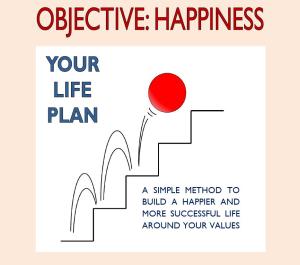Although we sometimes tend to deny it or to forget about it, but in the end all our actions are about happiness.
At work, people want to have a rewarding job, they want to feel appreciated and make the money they think they deserve, the boss wants to see good results, and the customer wants to get the proper quality. In our personal lives, we look for the right relationships, we have hobbies, and we like spending time with our friends and loved ones.
Why do we wish for all of the above and for more? The answer is simple: when things go our ways, it makes us feel good, it makes us feel happy!
Why do people change jobs? Why do people divorce? For these questions, too, the answer is simple: we change our lives when we are not happy about them. Yet, not everyone makes such changes and some settle with the unsatisfying situation. Does this make sense?
It does if we listen to the theory of Henri Laborit, a French neurobiologist and writer who studied human behaviour when people face adverse situations. According to him, we have three ways to deal with unpleasant situations such as conflicts: running away, fighting back or inhibition. In the French movie Mon Oncle d’Amérique, we can see illustrations of his works thanks to a comparison of life situations with the lab experiments. The research background he shows are experiments with lab rats. In the first experiment, the rat is in a cage with two compartments separated with a wall with an opening allowing the rat to change compartments. Only one compartment has a floor that can be electrified. The rat gets a warning with a buzzer and 4 seconds later the current flows in the floor. Very quickly, the rat realizes that when it goes into the other compartment where the floor is insulated, it escapes the punishment and all physical tests carried out show that the rat is in perfect health. The rat is fine.
Then the operator shuts the opening between the two compartments, the rat cannot escape the punishment. Very quickly, we can see the rat being completely stressed with its hair straight up and breathing quickly. The rat is not doing well at all.
Then, they add a second rat in the cage, and both rats have no other choice than take the electrical current. Instead of getting stressed and ill, the rats fight with each other, and it appears that this helps the dominant one to be perfectly healthy again.
We face this type of situations everyday in our societies. Sometimes, we choose to run away from difficult situations such as quitting a job because of a bad boss, instead of enduring stress every day. We sometimes can fight back, even fight, although our laws do not accept violence as a way of resolving conflicts. When people have no possibility to run away or fight, Henri Laborit’s theory is that they choose inhibition and do nothing at all. They simply take the punishment. Some can compensate this by fighting with their spouses at home, but this usually does not bring much good, either. According to Laborit, inhibition is the stage of angst, and angst is the result of the inability to cope with a situation that seems to have no solution. This usually results in ailment and even diseases, be it physical like ulcers or even cancer, or be it psychological leading to neurosis or depression. Turning against the own body becomes the way of fighting back, and the ultimate act of violence, one can commit against oneself is suicide.
On the other hand, he also noticed that when the rat experiences something that brings satisfaction and pleasure, its natural impulse is to get more of it. If it feels good, then it must be good!
I believe that this illustrate nicely how important it is to always try to look for satisfaction in our lives, at work and at home.
Excerpt from Mon Oncle d’Amerique (In French)



 Posted by Christophe Pelletier
Posted by Christophe Pelletier 








